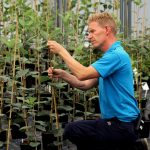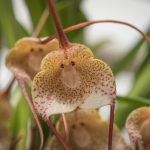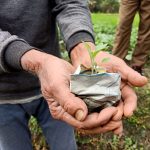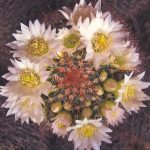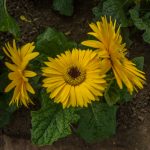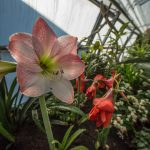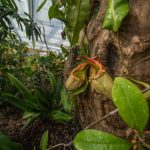Partners and collaborators
CONNECTING PEOPLE WITH THE BOTANIC WORLD
By harnessing the solar energy of the sun, plants provide the natural resources needed for life on Earth, to survive. 400,000 species of plant life exists on our planet, but sadly, 40% of this life source are thought to be at risk of extinction.
We’re working to conserve some of the most threatened plant species in the world, and aim to tackle ‘plant blindness’ by connecting people with the wonders of the botanic world – empowering them to help prevent their extinction.
The zoo’s botanists protect five National Plant Collections – recognised for their value in safeguarding the future of specific plant species. These include three cacti groups totalling 70 species, 134 species of Nepenthes pitcher plants, and an incredible 699 species of South American Pleurothallidinae orchid. Alongside these National Collections, lies hundreds of other threatened plant species, originating from a number of continents and a variety of plant families.
PROPAGATION AND REINTRODUCTION
In the zoo, various teams manage our estate and award-winning Nature Reserve, maintaining diverse wildlflower populations and plant species that help our native pollinator insects thrive. But our work at home is just half the story. Our horticulturalists work with various partners to ensure that our conservation efforts have an impact beyond the zoo’s gates, across Britain and around the world.
In Cheshire and North Wales, we’re helping to re-populate rare tree species, the Llangollen whitebeam and the black poplar, which have been pushed to the brink of extinction due to centuries of habitat loss. Meanwhile at the Great Orme Peninsula, our efforts towards the re-population of the Cotoneaster cambricus, a critically endangered species of shrub endemic to North Wales, are beginning to show. At one point, only 6 of these endemic plants existed, however our continued breeding efforts are finally giving this near extinct species the boost it needs, to help ensure its long term survival.
The floating water plantain (Luronium natans), a rare native plant found in shallow waters, has sadly disappeared from the Rochdale Canal network over the years, which is vital to this ecosystem as it reduces the impact of climate change. However, together with the Canal and River Trust, we’ve been working to propagate and reintroduce this aquaitic species back to the canal network. Alongside our work in Rochdale, we’re also trialling the restoration of sea holly on the Dee Estuary, in partnership with the Cheshire Wildlife Trust. Sea holly is a critical food plant for the small grayling butterfly, a species which has experienced a rapid decline in population over the years. Part of this restoration work, includes educational outreach activities as part of the Dee Wildlife Explorers program.
While we care for carnivorous Nepenthes plant collections in the UK, our passion for these unique species runs further afield. We also support the work of Senior Researcher at the Indonesian Institute of Sciences, Mohammed Mansur, and his team, who dedicate their time monitoring precious wild Nepenthes populations in remote areas of Indonesia.
SHARING SKILLS AROUND THE WORLD
Food plants also have a big impact on conservation. Our talented horticulture teams pass on their skills and knowledge to communities overseas, as part of empowerment projects in Nepal and Assam. By running workshops on sustainable vegetable growing, we hope to help impoverished communities grow, maintain and harvest their vegetables more effectively and reduce the impact human consumption can have on protected plant species in the wild.
Public engagement plays a key role in protecting precious plant life in the long term. In 2017 we built the Plant Project, a centre within the zoo dedicated to tropical plants and flowers, which allowed our visitors to get a closer look at vibrant tropical species, of which some are critically endangered. We hope to spread our vital conservation messages and educate our visitors on the important work we carry out with rare plants, in the UK and overseas, empowering them to help prevent their extinction. Our botanists and interpretation experts have built these exhibits, based upon stories of plant species, our stories of working around the world and the ways in which people can help our green planet to thrive. These exhibits are further supported by engagement sessions, ran by our Conservation Education and Engagement teams. These sessions aim to empower people to create their own solutions to preventing plant extinction

